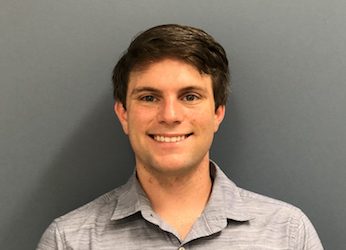Steinbach doctors volunteer to test service ideas after premier visit
Advertisement
Hey there, time traveller!
This article was published 01/12/2024 (371 days ago), so information in it may no longer be current.
Premier Wab Kinew and Health Minister Uzoma Asagwara were in Steinbach Nov. 29 for their last stop in their province-wide health care listening tour with frontline workers.
It was a chance for Southeast doctors, nurses and other staff to give ideas, voice concerns, and potentially shape the future of how health services are run and delivered in Manitoba.
“It was nice to see that the premier and the minister were modelling the type of listening that they’re advocating leadership in health care also display,” said Steinbach family physician Dr. Dennis Paige, who was at the meeting with what he guessed was about 80 other health care professionals.

The idea is to speak to workers outside of management to get a ground-level assessment of how things can be improved.
Paige hopes Steinbach can be a test case for the province.
“The physicians representing Steinbach (Family) Medical volunteered the clinic to be a site at which the provincial government could try different things — could experiment if we can use that word — with the kind of request to consider introducing lots of non-physician groups to care like physiotherapists or social workers or mental health workers, perhaps to see patients in addition to physicians,” said Paige.
He sees this as a way to more efficiently get patients the help they need.
Paige said over the two-hour meeting with the premier and health minister, subjects varied widely with a wide variety of staff. Family physicians, emergency room doctors, dietitians, nurses, physiotherapists and others were all there, and he guessed about 20 spoke up.
Paige has been in Steinbach as a physician since 2018, and was a resident starting in 2015. He said he has never seen anything quite like the listening tour before, and more senior colleagues had not seen anything similar for decades.
While he felt heard, Paige acknowledged change would not come easy.
In the short term, Paige said he wanted to see money flow through the system to where it is needed more easily.
“There may be funds allocated for one thing and that is not being used, and we’re supposed to use a different kitty that is empty. But it all comes from the same mother pot, and so that is often a concern,” explained Paige.
Then there are basic logistic fixes that need to be made. How the limited number of ambulances are used to transfer patients between hospitals was an example.
Paige said there is a new system in place that tracks ambulances across the province, with results yet to be measured.
“They take the calls from across the province and triage the need for ambulance care based upon each case, so hopefully access to ambulance service for those cases that are in dire need of transportation are actually transported. That’s one change that might help the system, but it’s an ongoing issue for the time being,” said Paige.
Changing the system
Then there are the big ideas that can potentially revolutionize or at least shake up how things are done. Paige pointed to former federal Health Minister Jane Philpot’s ideas in a new book as good source material on how to rethink doctor access.
He said one part particularly struck a chord with local physicians.
“If we look at education, when somebody moves to a new city or new town they look for a school for the child. So they look, what district am I living, that’s the school we’re going to.
“Health care should be the same. You move to a new city, you get assigned to a clinic based upon your postal code or your address.
“Rather than being put on a waitlist, when you move to a new city you don’t get put on an education waitlist where you sit there for five years waiting for a teacher to pick you up into the class. You’re assigned immediately, so there should be a system similar for primary care,” said Paige.
Of course the one thing hanging over any changes is a nationwide medical staffing shortage. Paige said this was brought up by emergency room physicians as a common source for delay of care.
“I think it’s pretty well known unfortunately. Currently the way the system is set up and the current level of resources is mismatched from the demand for health care,” said Paige.
A provincial press release said this is the first phase of the tour, which has led to follow-up meetings. Paige said Steinbach staff are set to meet with Dr. Amanda Condon next week to discuss advancing primary health care. Condon is a director at large with the College of Family Physicians of Canada, Associate Professor and Head in the Department of Family Medicine for Max Rady College of Medicine at the University of Manitoba, and a rural family doctor in Notre Dame de Lourdes when she is not practising intrapartum obstetrics at St Boniface Hospital or supporting the Charleswood Care Centre long-term care facility.
